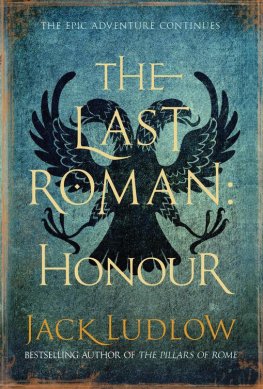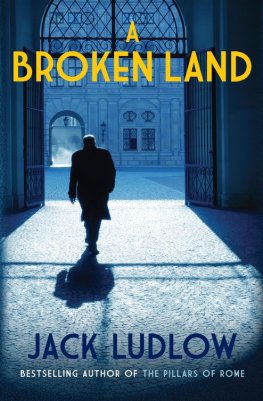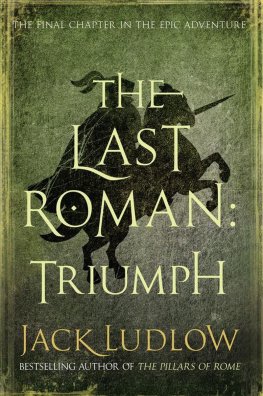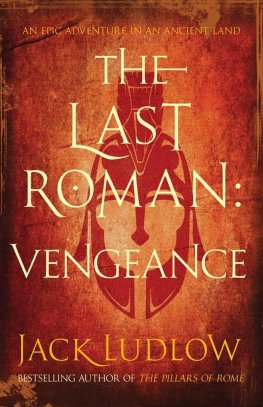Jack Ludlow - The Gods of War
Here you can read online Jack Ludlow - The Gods of War full text of the book (entire story) in english for free. Download pdf and epub, get meaning, cover and reviews about this ebook. genre: Adventure. Description of the work, (preface) as well as reviews are available. Best literature library LitArk.com created for fans of good reading and offers a wide selection of genres:
Romance novel
Science fiction
Adventure
Detective
Science
History
Home and family
Prose
Art
Politics
Computer
Non-fiction
Religion
Business
Children
Humor
Choose a favorite category and find really read worthwhile books. Enjoy immersion in the world of imagination, feel the emotions of the characters or learn something new for yourself, make an fascinating discovery.

- Book:The Gods of War
- Author:
- Genre:
- Rating:3 / 5
- Favourites:Add to favourites
- Your mark:
- 60
- 1
- 2
- 3
- 4
- 5
The Gods of War: summary, description and annotation
We offer to read an annotation, description, summary or preface (depends on what the author of the book "The Gods of War" wrote himself). If you haven't found the necessary information about the book — write in the comments, we will try to find it.
The Gods of War — read online for free the complete book (whole text) full work
Below is the text of the book, divided by pages. System saving the place of the last page read, allows you to conveniently read the book "The Gods of War" online for free, without having to search again every time where you left off. Put a bookmark, and you can go to the page where you finished reading at any time.
Font size:
Interval:
Bookmark:
Jack Ludlow
The Gods of War
PROLOGUE
Aquila Terentius left the mountain town of Beneventum the morning after he killed the four Greeks, descending from the high hills of central Italy to the coastal plain and a proper Roman road, which would take him north.
Forced by poverty to walk and hunt his food, he had much time to consider the recent events in his life. The experience of Sicily: arriving as a boy, leaving as a man; his own participation in the recent slave revolt: the dilemma of a Roman fighting against his own kind; the way his old friend and mentor had been sacrificed by the men upon whom he had taken his bloody revenge the previous night. They had betrayed the revolt they led and abandoned their slave army to Roman revenge, the beaten slaves men, women and children being herded and returned to the backbreaking work on the farms whence they had come. It was hard to see them as they had so recently been, a powerful army large enough to make Rome shiver.
The quartet of traitorous Greeks, once slaves themselves, had been relaxed in their luxurious hilltop villa, feeling secure under the protection of local guards, with slaves of their own now to fetch and carry. The long ladder he had fashioned to get in and out of the villa had been broken up, the bark strips used to bind the crosspieces to the long central staff had become kindling, the wooden slats he had fashioned from tree branches, firewood to keep him warm for the remainder of the night. No one had seen him enter or leave, and he had killed three of the turncoats quickly and in total silence the leader first, his tongue cut out, because that had been his weapon of choice to both inspire and then betray. Two of the others had been nonentities, lapdog pets of their chief, but the fourth, called Pentheus, had merited special treatment.
He had been present at the death of Gadoric, the Celtic warrior Aquila had seen as a surrogate father, who died as he would have wished, charging his Roman enemies in a fight he could not win a way to paradise for one of his religion. It was triple revenge; Pentheus had also murdered Didius Flaccus, the ex-centurion who had brought Aquila to Sicily in the first place and Phoebe, the girl with whom he had formed an attachment, she being consumed in the flames of Flaccuss farmhouse.
Pentheus had died very slowly, his mouth stuffed with the rich garment he had been wearing when he was dragged from his bed. The boys knife had worked relentlessly on the body, revelling in what he saw in the pain-filled eyes. Finally, with the man still alive, Aquila had chopped off his hands and feet, doing to Pentheus what he had done to Flaccus. The broken body he had disposed of as he had the others, by taking them out to their high balconies and throwing them into the ravine and the fast-flowing river below. Prior to that, using their bright red blood, he had drawn the image that defined him on each of their walls, the same as the gold talisman he wore round his neck, shaped like an eagle in flight.
At times, as he walked, he wondered if he had a future, but taking that object in his hand, he would be overcome by a strange feeling. He had been told it was his destiny but were the predictions true? There was only one place to go now and perhaps the answer he sought would lie there: the centre of his world; the city of Rome.
It was impossible to pass by the only place he had ever called home, not that there was anything left to see, but this was where had stood his adoptive parents hut. The familiarity was tempered by a strange sensation that everything seemed smaller than he remembered: the stream in which he had learnt to swim which ran into the Liris River, the trees in the nearby woods, even the distance between the hut and the busy Via Appia half a league away. Only the mountains to the east looked the same, rising in tiers, covered in dense forests, with that strange-shaped extinct volcano, with a cap shaped like a votive cup, the tallest of them all.
Standing on the spot, Aquila could almost hear Fulminas voice, often berating her husband Clodius. It was she who had prophesied greatness for him, with a faith he had never been able to share; how could he, the child of peasants, do what she foretold? Only on the day she died did he hear the truth; he had been brought here as a newborn child, exposed in the nearby woods to die on the feast day of the Goddess Lupercalia.
Clodius, occasionally drunk, always on the sharp end of his wifes tongue, had been sleeping off a drinking bout. Woken by a baby crying for food, he had fetched him back to his wife, knowing it would assuage her anger. On his ankle had been the charm he now wore round his neck, an indication that at least one of his true parents wanted him to live. Had they sold it they could have lived in some comfort and Clodius would have been spared the need for service, and ultimately death, in the legions; then they did not speak of the power Fulmina felt, and the dreams that merely touching the charm had brought on.
A wander round the district brought back other memories, like the day he had met Gadoric, a slave disguised as an addle-brained shepherd; of the dog Minca, huge and fierce to a stranger, as gentle as a lamb to a friend, long dead now. The shepherd hut was still there, occupied by another, sitting at the edge of the field where the Celt had taught him how to fight with a wooden sword, how to fire an untipped arrow and most of all how to use the spear he still carried, which Gadoric had stolen from the guards of his owner, the fat senator, Cassius Barbinus.
The land he walked on belonged to Cassius Barbinus; Sosia, the slave girl, with whom he had enjoyed a tender childhood romance, had belonged to Barbinus. Didius Flaccus, the ex-centurion who had taken him to Sicily, had worked for Barbinus. Aquila had lived with Flaccus and his ruffian guards on the fat senators Sicilian farms, and so, unwittingly, he had visited cruelty on the slaves in the name of profit. The man loomed so large in his life and here he was, standing in the woods that sheltered the cistern that fed the fountains and baths of the Barbinus villa, close to tears as he contemplated life without all the people who filled his memories.
He was tempted to visit the Dabo farm, where he had gone to live after the death of Fulmina, but that was not a place of fond memories. He had hated Piscius Dabo for the way he had duped jolly but dim-witted Clodius into deputising for him when he was called up for a second stint in the legions, this so he could stay home and get rich. Was the old bugger Dabo still alive anyway, or was his farm now in the hands of his sons, Annius and Rufurius, boys he used to fight all the time?
Old neighbours, recognising him, told him, with no sign of grief, that Piscius was dead: Annius Dabo, the eldest son and a born bully, had the farm, now a ranch, while Rufurius, who had at least tried to be friendly to orphaned Aquila, had got nothing, and was no longer in the vicinity. They also told him there was a legacy waiting for him in Aprilium, a bequest made by a general called Aulus Cornelius Macedonicus, who had died commanding a cohort of the 10th Legion at the Pass of Thralaxas in Illyricum, money for the support of the dependants of his fallen legionaries, Clodius being one of that number.
Having established his identity with the priests at the temple, and because there was nothing for him now in the place in which he had grown up, he made his way back on the Via Appia, and continued to head north.
Marcellus Falerius came back to a house on the Palatine Hill that seemed empty without his father. Ever since he could remember, the spacious atrium had been full of supplicants seeking favours from Romes most powerful politician, the leader of the optimates: now it had a hollow feel. The household slaves, normally so busy attending to those petitioners, were idle, in mourning, staying in their quarters, some no doubt praying to their own gods that they would be freed in their late masters will. It was maddening that he had died at the very pinnacle of his career, having just put down a slave revolt in Sicily, not with fighting legions, as was the norm, but by sheer cunning.
Font size:
Interval:
Bookmark:
Similar books «The Gods of War»
Look at similar books to The Gods of War. We have selected literature similar in name and meaning in the hope of providing readers with more options to find new, interesting, not yet read works.
Discussion, reviews of the book The Gods of War and just readers' own opinions. Leave your comments, write what you think about the work, its meaning or the main characters. Specify what exactly you liked and what you didn't like, and why you think so.





